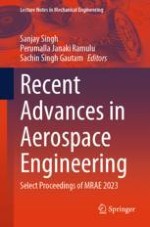2024 | OriginalPaper | Buchkapitel
Machine Learning Assisted Development of Eight Node Hexahedral Finite Element
verfasst von : Tadala Venkata Krishna Subhash, Ankit, Dipjyoti Nath, Sachin Singh Gautam
Erschienen in: Recent Advances in Aerospace Engineering
Verlag: Springer Nature Singapore
Aktivieren Sie unsere intelligente Suche, um passende Fachinhalte oder Patente zu finden.
Wählen Sie Textabschnitte aus um mit Künstlicher Intelligenz passenden Patente zu finden. powered by
Markieren Sie Textabschnitte, um KI-gestützt weitere passende Inhalte zu finden. powered by
